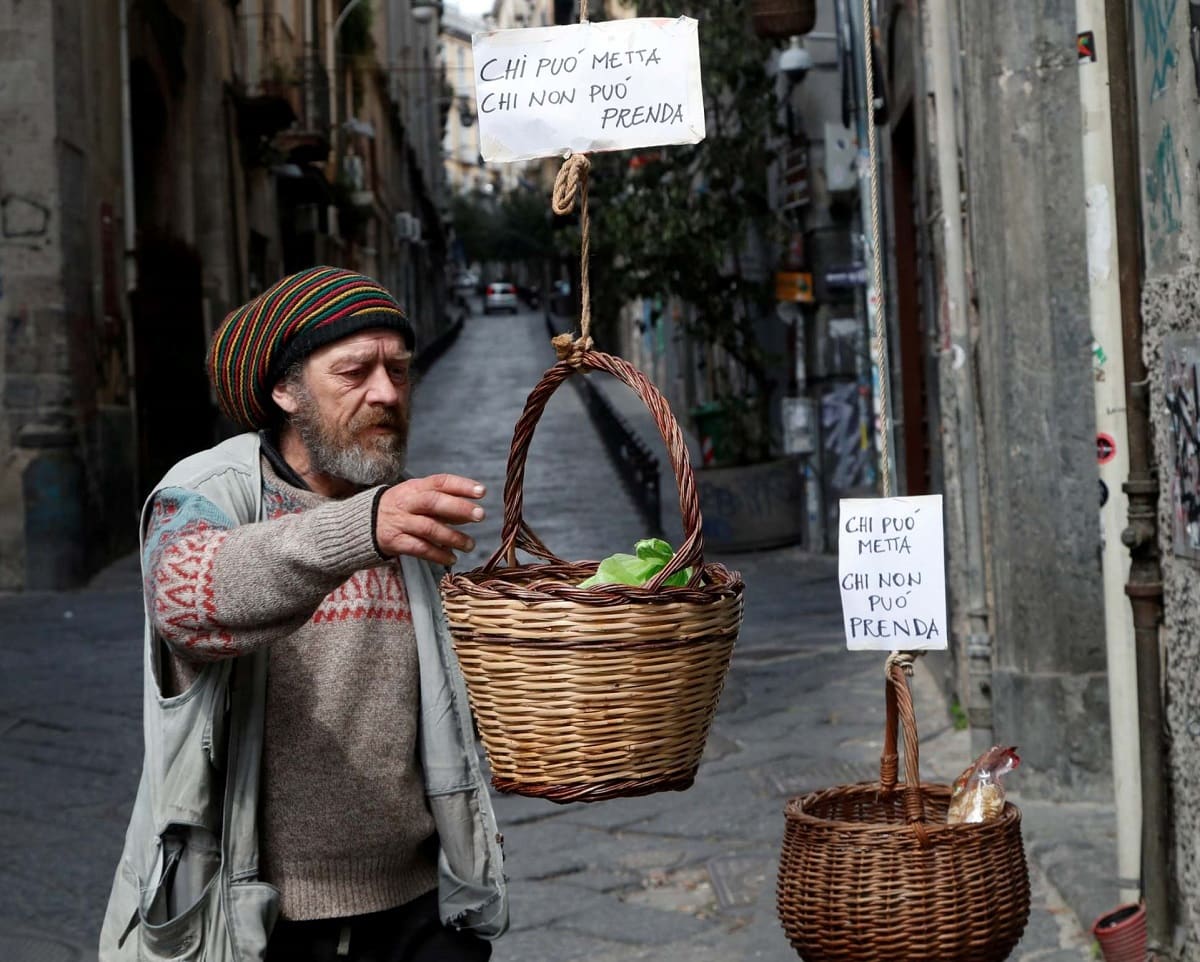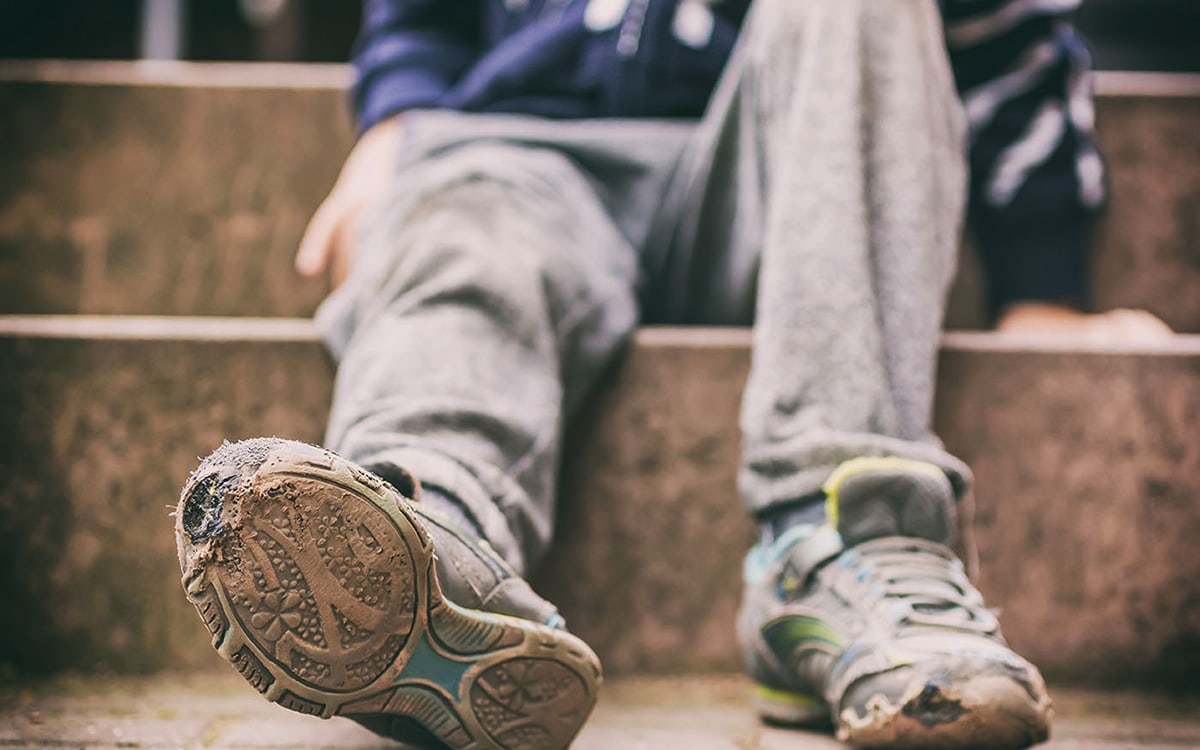Les dernières données de l’Organisation Internationale du Travail (OIT) sur l’impact de la pandémie COVID-19 sur le marché du travail révèlent ses effets dévastateurs sur les travailleurs de l’économie informelle et sur des centaines de millions d’entreprises dans le monde. Alors que les pertes d’emploi s’intensifient, près de la moitié de la main-d’œuvre mondiale risque de perdre ses moyens de subsistance. Des conséquences en cascade qui vont jusqu’à altérer la santé mentale.
La poursuite de la baisse significative du nombre d’heures travaillées dans le monde en raison du Covid-19 a pour conséquence que 1,6 milliard de travailleurs de l’économie informelle – soit près de la moitié de la main-d’œuvre mondiale – doivent désormais faire face au danger immédiat de voir leurs moyens de subsistance anéantis, avertit l’OIT.
Selon la note Observatoire de l’OIT, « Le COVID-19 et le monde du travail 3e édition », la baisse du nombre d’heures travaillées pour le trimestre en cours (deuxième trimestre 2020) devrait s’aggraver de manière significative par rapport à l’estimation précédente.
Soit, en d’autres termes, près de la moitié des 3,3 milliards de travailleurs sur la planète. Il faut s’attendre à un « impact énorme en matière de pauvreté », a alerté l’OIT.
Si l’on compare aux niveaux d’avant la crise (4e trimestre 2019), une baisse de 10,5% est attendue, équivalente à 305 millions d’emplois à temps plein (avec comme base une semaine de travail de 48 heures). L’estimation précédente prévoyait une chute de 6,7%, équivalente à 195 millions de travailleurs à temps plein. Ceci est la conséquence de la prolongation et de l’extension des mesures de confinement. Dans ce contexte, l’urgence du déconfinement s’impose de jour en jour, au risque pourtant de relancer la pandémie.
Pour le directeur général de l’OIT, Guy Ryder, lors d’un communiqué aux médias, « Il faut s’attendre à un impact énorme en matière de pauvreté. Des millions d’entreprises à travers le monde ont du mal à tenir la tête hors de l’eau. Elles n’ont pas d’épargne ou pas d’accès au crédit. Voilà pourtant le vrai visage du monde du travail. Si nous ne leur venons pas en aide dès à présent, elles vont périr, tout simplement. »
Crise économique mondiale
Au-delà du drame humain, les indices économiques en chute libre n’en finissent pas de tomber, qui confirment l’impact dramatique de la pandémie sur l’économie planétaire. La plupart du temps, la situation a empiré au niveau régional. Selon l’OIT, les secteurs les plus touchés par la paralysie de l’économie sont les services d’hébergement et de restauration, l’industrie, le commerce de gros et de détail, l’immobilier et les activités commerciales.
Dans les Amériques, l’estimation s’établit à 12,4% de perte d’heures travaillées au 2e trimestre (si l’on compare aux niveaux d’avant la crise). Conséquence du coronavirus, la croissance des Etats-Unis a chuté pour la première fois depuis dix ans, nouvelle illustration de l’urgence économique du déconfinement entamé dans plusieurs pays, mais toujours sous la menace d’une résurgence de la pandémie qui pourrait affecter à présent directement les enfants.
- LIRE DANS UP’ : Covid-19 : Alerte sur les formes graves touchant les enfants
Après dix années de croissance ininterrompue, les Etats-Unis ont annoncé mercredi un recul de leur PIB de 4,8% en rythme annuel pour le premier trimestre de l’année, selon une estimation préliminaire du département du Commerce. Ceci alors que plus de 26 millions de personnes se sont inscrites au chômage ces cinq dernières semaines, du jamais vu. Il s’agit de la plus importante baisse du PIB depuis le dernier trimestre 2008 quand les Etats-Unis s’enfonçaient dans la crise financière.
Elle est de 11,8% pour l’Europe et l’Asie centrale. Les estimations pour les autres régions du monde sont assez proches, toutes étant supérieures à 9,5%.
Le gouvernement allemand s’attend, lui, à la pire récession depuis le début des calculs en 1970 avec une baisse du PIB de 6,3% cette année, a annoncé mercredi le ministre de l’Economie, Peter Altmaier. « Nous allons vivre la pire récession de l’histoire de la République allemande« , a-t-il prévenu.
Quant à la France, le deuxième projet de loi de finances rectificative (PLFR) prévoit une contraction de 8% du PIB et un déficit public de 9% en 2020. Du jamais vu depuis 1945.
Conséquences sur l’économie informelle
En raison de la crise économique créée par la pandémie, près de 1,6 milliard de travailleurs de l’économie informelle (représentant les plus vulnérables sur le marché du travail) ont subi une réduction sévère de leurs capacités à gagner leur vie, sur un total mondial de 2 milliards et une main-d’œuvre mondiale de 3,3 milliards. Il s’agit d’une conséquence des mesures de confinement et/ou en raison du fait qu’ils travaillent dans les secteurs les plus touchés.
On estime que le premier mois de la crise a entraîné une baisse de 60% du revenu des travailleurs informels dans le monde. Cela se traduit par une chute de 81% en Afrique et dans les Amériques, 21,6% en Asie et Pacifique et 70% en Europe et en Asie centrale.
Même si le coronavirus a tardé à arriver en Afrique, le continent a été l’un des premiers à fermer ses frontières et interdire les rassemblements de masse. Comme l’explique Le Monde, « L’île Maurice, le Rwanda et la Tunisie ont été les premiers à imposer un confinement total, Maurice allant même jusqu’à fermer ses supermarchés et boulangeries pendant dix jours. Première puissance industrielle du continent, l’Afrique du Sud leur a emboîté le pas. Et lundi, le Nigeria a prolongé pour deux semaines le confinement à Abuja, la capitale fédérale, et Lagos, ville la plus peuplée d’Afrique avec 20 millions d’habitants. Dans ces deux villes, des millions de personnes dépendent de l’économie informelle pour survivre. »
Jakkie Cilliers, expert auprès de l’Institute for Security Studies, fait remarquer que « La réaction inévitable a été de suivre ce que le reste du monde faisait ». Interrogé par Le Monde, il « appelle les Africains à élaborer leur « propre solution » pour vaincre le virus » : « Un confinement est impossible à mettre en œuvre et est intenable dans la plus grande partie de l’Afrique, argue-t-il. Vous condamnez les gens à choisir entre mourir de faim ou tomber malade. Dix personnes vivant dans un abri en tôle ne peuvent pas rester trois semaines sans sortir dehors. »
Autre exemple, les Etats-Unis où des millions de personnes ont perdu leur emploi en quelques semaines, la demande d’aide alimentaire connaît une hausse vertigineuse dans l’ensemble du pays, rapporte le New York Times. Les organisations caritatives, qui n’ont jamais été destinées à gérer une crise nationale, sont débordées.
Les pays d’Asie et du pacifique font aussi l’objet d’une forte hausse de la pauvreté. Alors que la croissance s’effondre, entre 11 et 24 millions de personnes seraient contraintes de rester sous le seuil de pauvreté et de vivre avec moins de 5,50 dollars par jour, selon une alerte de la Banque mondiale.
Sans sources de revenus alternatives, ces travailleurs et leurs familles n’auront plus de moyens de subsistance.
- LIRE DANS UP’ : Vers une crise mondiale de l’alimentation ?
Entreprises en péril
La proportion des travailleurs vivant dans des pays où les lieux de travail font l’objet d’une fermeture obligatoire ou recommandée est en baisse de 81% à 68% ces 15 derniers jours. Cette baisse par rapport à l’estimation précédente de 81% mentionnée dans la deuxième édition de l’Observatoire (publiée le 7 avril) a pour cause principale les changements intervenus en Chine. Ailleurs, les mesures de fermeture des lieux de travail sont en augmentation.
Au niveau mondial, plus de 436 millions d’entreprises font face à des risques élevés de perturbations. Ces dernières exercent leur activité dans les secteurs économiques les plus touchés, comme c’est le cas de 232 millions d’entre elles dans la vente en gros et au détail, 111 millions dans l’industrie, 51 millions dans l’hôtellerie et la restauration, et 42 millions dans l’immobilier et d’autres activités commerciales.
Conséquences sur la santé mentale chez de nombreux travailleurs
Selon une analyse ce 28 avril de Lode Godderis, du Centre pour l’environnement et la santé au Ministère de la Santé publique et des Soins primaires (Belgique), la pandémie et la récession économique qui en résulte vont exacerber les disparités préexistantes en matière de santé et auront une incidence plus grande encore sur la santé mentale des groupes vulnérables et défavorisés, en particulier les personnes handicapées et les chômeurs.
Le chercheur explique que « Nous devons être conscients des conséquences à long terme sur la santé de tous les travailleurs. On peut s’attendre à des absences de personnel, non seulement pour cause d’infection au COVID-19 , mais aussi en raison du stress, de la frustration et de l’isolement. De profondes inégalités en termes de santé résultant de la pandémie et de la récession économique sont également à craindre. Pour les personnels soignants, les problèmes de santé mentale sont principalement liés à une charge de travail élevée durant la crise. Pour les employés, ce sont plutôt l’isolement et le confinement qui risquent d’affecter leur santé mentale. Enfin, pour les ouvriers, les problèmes de santé mentale pourraient provenir de la précarité de l’emploi et de la perte de revenus. »
Est-il possible d’inverser la tendance ? Pour Lode Godderis, « Si l’on réfléchit à de précédentes pandémies qui ont été suivies d’une récession économique, il ressort clairement que les pays qui investissent dans la protection sociale et les programmes de soutien, et qui offrent suffisamment de possibilités d’emploi peuvent atténuer les effets de toute crise de santé mentale résultant d’une pandémie. Les personnels soignants surchargés de travail auront besoin de temps pour récupérer de cette période, alors même que les services de soins de santé reviendront à un niveau de fonctionnement normal. Il importe que les personnes qui ont travaillé à distance depuis chez elles durant la crise se préparent mentalement à retourner au travail. Ces personnes peuvent se montrer réticentes à la perspective de reprendre le travail, redoutant un risque accru d’infection ou un avenir professionnel incertain. Enfin, il convient de mentionner les travailleurs – une grande partie de la population – qui ont déjà perdu leur emploi, doivent s’accommoder d’horaires de travail réduits ou faire face à de fortes diminutions de salaires. »
En général, les récessions exacerbent les disparités qui existaient déjà en matière de santé et ont une incidence encore plus grande sur la santé des groupes vulnérables et défavorisés, tels que les personnes handicapées, les malades et les chômeurs. Pour ces catégories de travailleurs, il convient d’adopter d’autres mesures de soutien pour leur permettre de reprendre leurs fonctions dans la société, mais aussi d’éviter de graves conséquences sur les plans financier et de la santé mentale.
Jusqu’ici, dans les activités de planification face à la pandémie, on n’a pas tenu suffisamment compte de ces inégalités sous-jacentes et des déterminants sociaux de la santé. Or, si l’on pouvait mettre à profit la vague extraordinaire de solidarité qu’a suscitée la pandémie du COVID-19, les effets de la récession économique pourraient se répercuter favorablement, et de manière inattendue, sur notre santé. Mais cela exige la mise en œuvre de mesures appropriées pour éviter les disparités en matière de santé.
Lode Godderis préconise que « Les gouvernements devraient élaborer des plans pour réduire les inégalités en termes de charge liée à la maladie, que ce soit au niveau national ou international. Leurs efforts devraient être axés principalement sur les travailleurs des classes sociales inférieures, où les mesures peuvent se révéler plus efficaces pour atténuer les effets des maladies. Une collaboration internationale s’impose par ailleurs pour soutenir les pays à faible revenu et à revenu intermédiaire, où une grande partie de la population est pauvre. »
La sécurité sur les plans financier et de la santé mentale après la crise du COVID-19 dépendra de l’adoption, ou non, de politiques de soutien ciblant les inégalités sociales. Ainsi, même en cas de récession, la création ou le maintien d’emplois sûrs permettra en définitive d’en réduire au minimum les effets sur la santé des travailleurs après la crise.
Nécessité de mesures urgentes
L’OIT appelle à des mesures urgentes, ciblées et souples afin de soutenir les travailleurs et les entreprises, notamment les petites entreprises, ceux qui exercent leur activité dans l’économie informelle ainsi que les autres personnes vulnérables.
Ces mesures de relance économique doivent être génératrices d’emplois, soutenues par des politiques et des institutions du travail plus robustes, et des systèmes de protection sociale mieux financés et plus complets. Une coordination internationale au niveau des mesures de relance et d’allégement de la dette est également essentielle pour rendre la reprise économique optimale et durable. Les normes internationales du travail, qui bénéficient déjà d’un consentement tripartite, peuvent servir de cadre.
« Au fur et à mesure de l’évolution de la pandémie et de la crise de l’emploi, le besoin de protéger les plus vulnérables devient de plus en plus pressant », affirme Guy Ryder, Directeur général de l’OIT. « Pour des millions de travailleurs, l’absence de revenus signifie plus rien à manger, et l’absence totale de sécurité et d’avenir. Des millions d’entreprises à travers le monde ont du mal à tenir la tête hors de l’eau. Elles n’ont pas d’épargne ou pas d’accès au crédit. Voilà pourtant le vrai visage du monde du travail. Si nous ne leur venons pas en aide dès à présent, elles vont disparaître, tout simplement. »
(Sources : OIT, AFP, ONU)
Photo d’en-tête : Les habitants de Naples accrochent des paniers remplis de nourriture pour les moins fortunés pendant la crise du coronavirus. ©internewscast.com












